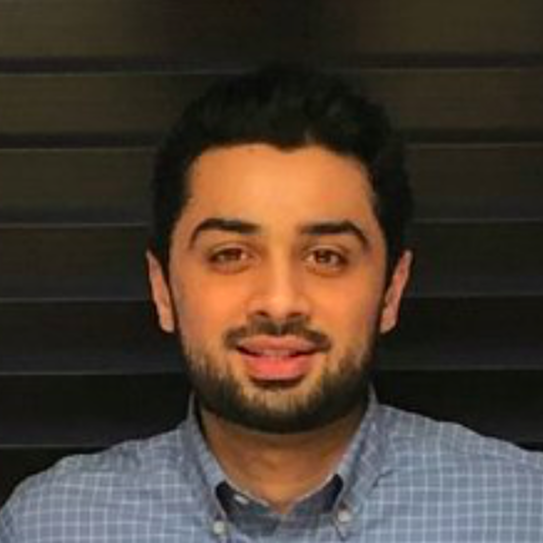Fawad Piracha, PharmD, IgCP

Current Company & Role?
Senior Vice President, Clinical Affairs at KabaFusion.
Prior to starting, what were you expecting the program to be like? How was it different than your expectations?
I expected the program to be almost exclusively academic. While the program is rigorous and heavily emphasizes theoretical and practical domains of business, Columbia Business School leadership has done a fine job with fostering camaraderie, social outreach, and professional engagement. I am thoroughly impressed by the efforts led by Dean Kelley Martin-Blanco and others who have made the MBA experience truly exceptional, despite the tremendous hurdles that COVID-19 has presented.
Why did you choose Columbia Business School? Or, what does a Columbia MBA degree mean to you?
My affinity to Columbia University originates from my father, whose first restaurant, Mike’s Papaya, was located on Broadway and 110th Street from 1989 through 2001. Mike’s Papaya was a staple in Morningside Heights and thrived, especially among Columbia University students. I vividly remember exploring the neighborhood, walking through Columbia University’s campus, and relishing the hustle and bustle, at a very young age. While I developed an interest and passion for healthcare and the biopharmaceutical industry, I always aspired to supplement my training and experience with a world-class MBA. In my opinion, there is no program that rivals the reputation and excellence of Columbia Business School paired with the immense benefit of being in Manhattan.
How have your classmates help you balance work/life/family responsibilities?
My colleagues positively influence me; we communicate routinely and help each other as much as possible. My learning team members have been incredibly resourceful; we work as a unit to ensure that we successfully complete projects, learn, and thrive.
Which faculty members(s) influenced you the most, and how?
Professor Paul Ingram, who taught Leadership and Organizational Change, exposed me to the inner dimensions of personal and professional leadership. This gave rise to my understanding of the importance of self-reflection and my realization of the true nature of my strengths and weaknesses. The ideas and skills I learned from Professor Ingram have contributed to my growth as a leader.
What has been your most memorable experience at Columbia Business School so far?
I have enjoyed every moment of my time at Columbia Business School so far, so it is challenging to identify which experience has been the most meaningful. A uniquely memorable experience I had was during Residence Weekend, where I quickly befriended many of my classmates and learning team members. The sheer excitement and energy of congregating for the first time was truly exciting, especially since Columbia Business School made excellent arrangements for Residence Weekend to be in person during COVID-19.
Can you describe a time when you learned something in the curriculum and applied it immediately to your work environment?
Professor Ingram taught us a great deal about organizational change and how success follows an S-Curve pattern. This important lesson made me realize that success for certain company-wide initiatives that I am leading will eventually be realized, although not quite at the pace that I expect to observe profound results. This valuable lesson enabled me to appropriately plan and lead with self-assurance.
Can you describe the Executive MBA community and why it is special?
It is truly exciting to learn alongside esteemed and accomplished professionals who have great personal and professional aspirations. I have already developed deep friendships that will last a lifetime. I am constantly encouraged and inspired by the ambitions of my classmates and the larger EMBA community.
What advice would you give to a new student coming into the EMBA program at Columbia Business School?
Prepare proactively and ensure that there is a robust support system (e.g., family, friends, co-workers, classmates, etc.) in place to ensure success. In addition, time management and energy preservation are important skills to refine to minimize the likelihood of burnout and other unfavorable outcomes.
How will you apply your learnings to a post-COVID world?
I have learned that organizations need to be adaptable to succeed in the face of unexpected realities. Following COVID-19, I have learned that empathy and developing authentic relationships are important for teams and companies to prosper.
Have you taken advantage of any of our Centers or Programs; such as, Chazen, Samberg, or Lang? If so, what was your experience like?
I have attended events hosted by the Student Leadership and Ethics Board, which were meaningful in that I was exposed to the importance of ethical leadership and morality.